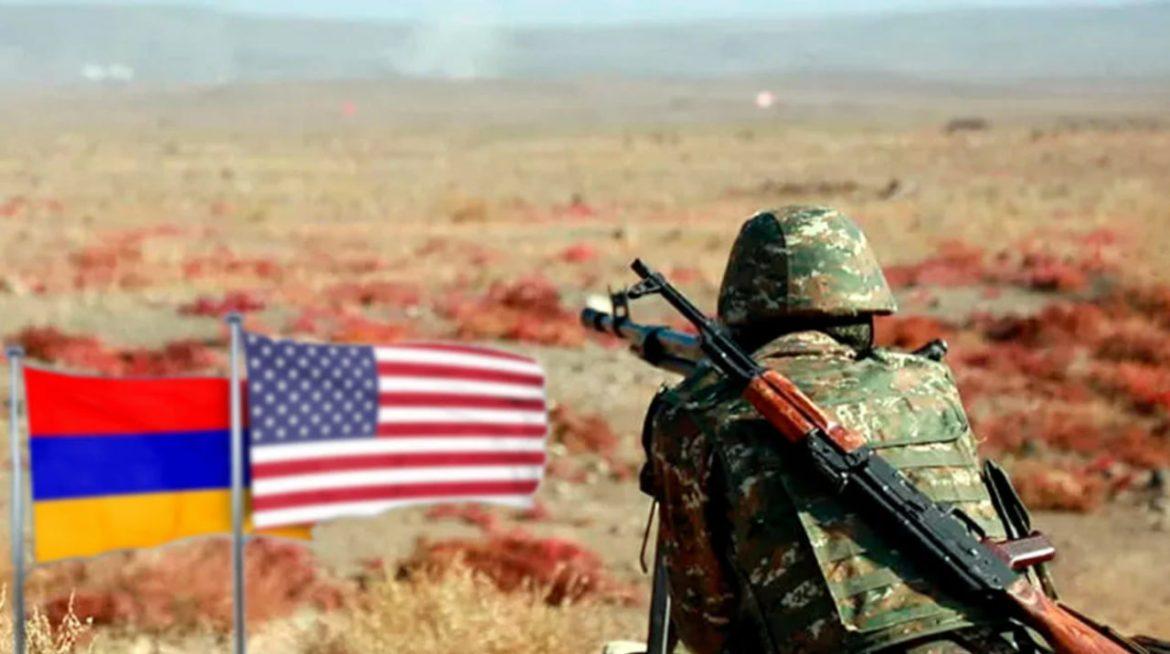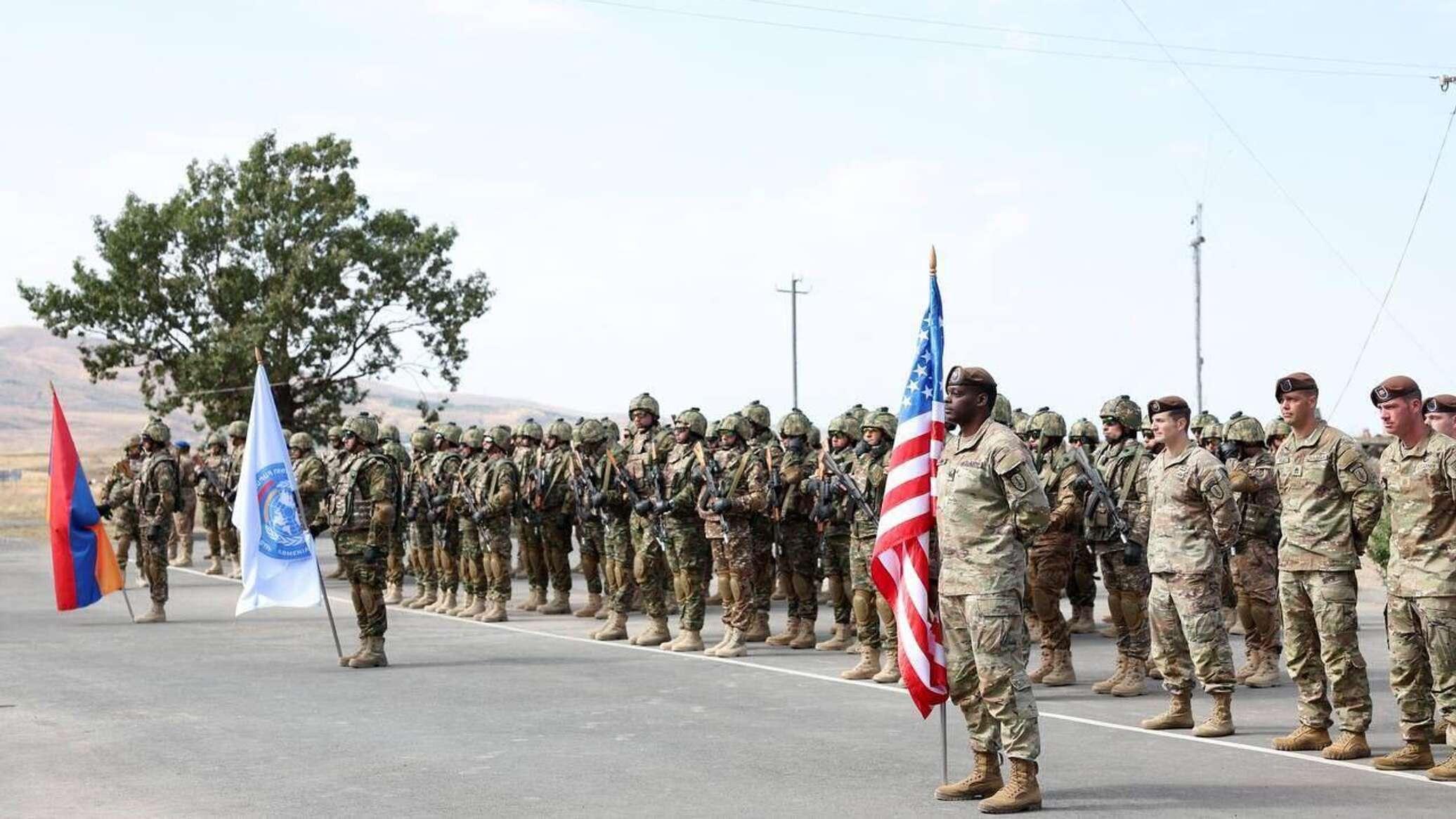How the US is provoking conflict in the South Caucasus? Armenia’s proxy status
On July 20, units of the Armenian Armed Forces fired large-calibre weapons at Azerbaijani army positions in the direction of the Istisu settlement of the Kalbajar region. Surprisingly, this provocation took place right in the middle of joint military exercises between Armenia and the United States, which are being held on the territory of Armenia. According to the Armenian Ministry of Defence, the purpose of the exercise is to improve the level of cohesion of units participating in international peacekeeping missions within the framework of peacekeeping operations, exchange best practices in the field of command and control and tactical communication, as well as to increase the combat readiness of Armenian units.
Contrary to the euphoniousness of the stated objectives of the exercise, it is clearly intended to prepare for offensive and sabotage operations in mountainous terrain. In other words, the Armenian army is preparing to conduct such operations in the regions bordering Azerbaijan. The Americans and Europeans in Armenia are doing this work together, which also includes reconnaissance actions against our country on the notional border.

But this is not all. As Azerbaijani media have learnt, the shelling of Azerbaijani positions was carried out with the participation of military advisers representing the United States, France and the European Union. Washington and its satellites thus decided to test in a combat situation the recently transferred lethal weapons to Armenia, as well as to track how the Azerbaijani army would react to the shelling.
Given the close strategic relations that the US and Armenia have been building for more than five years, the large-scale intelligence infrastructure that the Americans have in the country, the guarantees of military and other assistance enshrined at the trilateral EU-US-Armenia meeting in Brussels on 5 April this year, as well as Washington's biased position on the Armenian-Azerbaijani settlement and its desire to promote a destructive narrative about the alleged "ethnic cleansing" that took place in Karabakh, this order to commit a provocation is not surprising.
It is only natural that this US policy further distances Armenia and Azerbaijan from the peace agenda. With this unfriendly act, the United States has definitively signed its name as having no right to act as a mediator in the peace process between the two countries.
What does the United States want? Azerbaijan's full restoration of its territorial integrity and sovereignty has dealt a painful blow to the configuration of the South Caucasus as a conflict region that had been built up over the years, allowing third powers to promote their interests in the region using a system of checks and balances. This is the very policy of dividing lines that President Ilham Aliyev constantly talks about. It is not by chance that the President mentioned these very dividing lines during his meeting with the participants of the media forum in Shusha, referring to his relations with the Democrat administration in the United States.
However, this policy has now met an obstacle in the form of an independent force that has emerged in the South Caucasus, Azerbaijan, which has spread its shoulders and begun to serve as the flagship of the movement for the political subjectivity of all three countries in the region. And it should be noted that neighbouring Georgia is making good use of our country's experience in strengthening its own statehood and independence from external influence.
Unfortunately, the same cannot be said about Armenia. Still in the grip of centuries-old illusions about their own exceptionalism, the Armenian people and their elected leaders are easily tempted to act at the instigation of the world's curators, who nurture revanchist sentiments in them in every possible way. Add to this the purely material interest of the Armenian leadership in financial and other assistance from abroad and we get a sad picture - Armenia is once again being used as an outpost, and if we call things by their more real names, as a consumable material for fuelling the fire in the South Caucasus and, more widely, on Turkey's eastern borders.
Yes, we should not forget that although brotherly Türkiye is a member of NATO, its growing geopolitical power in recent decades has made it uncomfortable for Washington, which is accustomed to the passivity of its allies. A strong, independent and, most importantly, geopolitically active Turkey seems to pose a danger to the expansionist policy of the United States and its desire to retain its role as the world's gendarme.
The US logic is that Christian Armenia should be used as a springboard against the surrounding Muslim countries - Azerbaijan and Türkiye, but not Iran. Is it not because the odious chauvinist, Iranian Ambassador to Armenia Mehdi Sobhani, as if he had water in his mouth, said that the US policy is aimed at weakening the strategic, brotherly alliance between Türkiye and Azerbaijan, which has probably become a terrible dream for certain forces in Tehran. I can assume that the same interest explains the sluggish reaction of Russia, which, having colossal resources of influence on Armenia, has so far limited itself to statements only.

Thus, Türkiye should be seriously concerned about the latest US actions on its eastern borders. Everything goes to the point that the US will nurture Armenia into a terrorist proxy formation against Turkey, just as it has used YPG/PKK terrorists based in Syria and Iraq so far. And there are similar precedents in the history of a century ago - just recall the arming and training of the Armenian Dashnaks and their use against the Ottomans. In the decrepit Biden, it is as if Woodrow Wilson, who sought to take a fat chunk from Türkiye in favour of Armenia, has been reincarnated. America has once again entered the active phase of the game for dominance in the South Caucasus. The chaos that the United States once sowed in the Middle East, it now wants to transfer to our region.
There are certain hopes that if Donald Trump wins the US presidential election, pragmatism will prevail in the White House and Washington will refrain from dangerous adventures in the South Caucasus, unlike its opponents from the democratic camp. However, let's not go to the extreme and tie too high expectations to the Republicans' rise to power, which, although very likely, is not predetermined. Here we can step on the slippery ground of assumptions - they should be taken into account, but we should always prepare for the worst-case scenario.
And this is exactly the policy that Azerbaijan has followed in its recent history. Azerbaijan remains faithful to its strategy of strengthening both its sovereignty and strategic interaction with a number of external players. The synergy of these vectors has so far borne tremendous fruit. Our task is to strengthen this strategy in every possible way.








